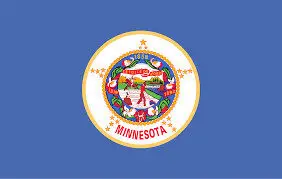Wisconsin Wills vs. Trusts
Navigating Wisconsin estate planning doesn’t have to be overwhelming. The Badger State offers unique estate planning features including a statutory Basic Will form, marital property laws similar to community property states, and streamlined options for small estates. With Wisconsin’s marital property system influencing how assets pass at death, understanding the key differences between wills and trusts can save your family significant time, money, and stress while preserving your legacy.
Table of Contents
US Map For The Different Will and Trust Requirements by State
Interested in other state’s law regarding wills and trusts? Click the ABOVE state you want to be taken to.
Wisconsin Will Requirements
A Wisconsin Last Will and Testament should include:
- Age and Capacity: Testator must be at least 18 years old and have adequate mental capacity
- Format: Must be in writing
- Signature: Must be signed by the testator (or by another person in the testator’s presence and at his or her direction)
- Witnesses: Must be signed by at least two witnesses
Witness Requirements
For Wisconsin wills:
- Witnesses must observe the testator signing the will or hear the testator’s declaration that the testator’s signature is genuine
- Witnesses must sign the will in the testator’s presence and within a reasonable time after the signature or authentication occurs
- Anyone competent under Wisconsin law to act as a witness in court can witness a will
Interested Witness Limitations
A Wisconsin will witnessed by an interested party (i.e., someone who receives a personal and beneficial interest under the will) is not invalid as a whole. However, provisions in favor of an interested witness (or an interested witness’s spouse) are void to the extent the value exceeds what the witness would have received had the testator died intestate.
Self-Proved Wills
Though notarization of a will is not strictly required in Wisconsin, a will can be made “self-proved” if it includes a notarized affidavit with a self-proving clause attached to the will. When a will is self-proved:
- The affidavit is executed by both witnesses and the testator
- It states that the testator willingly signed the will with the intent to create a will and with the required legal capacity
- The affidavit serves as evidence of the will’s authenticity and allows for admission in probate without further witness testimony
Incorporation by Reference
Wisconsin law authorizes testators to incorporate other documents within a will by reference:
- Documents can include written lists setting forth dispositions of tangible personal property not otherwise addressed in a will
- These “memorandums of personal property” must be signed and dated by the testator
- The list must identify with reasonable certainty the devised items and intended recipients
- A list of personal property can be created before or after a will is executed and can be altered by the testator
- Wisconsin law also authorizes a similar list disposing of “digital property“
Need help creating the right estate plan for your Wisconsin family?
Our estate planning specialists can help you navigate Wisconsin’s unique laws and create a personalized strategy.
THE ULTIMATE FREE DOWNLOAD
The Estate Planners Tactical Guide
Essential Legal Protection for Achievers

Amendment, Revision, and Revocation of Wisconsin Wills
Revoking a Wisconsin Will
Wisconsin wills can be revoked by:
- Physical destruction of the will (e.g., by burning or tearing) with the intent to revoke
- Execution of a later will or codicil that explicitly declares an intent to revoke the prior will
Amending a Wisconsin Will
Amendment of a Wisconsin will can be accomplished through:
- A codicil (a later-executed addendum to an existing will)
The codicil must satisfy all formalities required for Wisconsin wills.
Implicit Revocation
A new will that does not expressly revoke a prior will is presumed to revoke the prior will by inconsistency if the later will completely disposes of the testator’s estate. If a later will does not completely dispose of the testator’s estate, it is presumed to have been intended as a supplement to the earlier will, with the later-executed will controlling in the event of any conflicting provisions.
Automatic Revocation by Divorce
If, after executing a Wisconsin will, a testator is divorced, any provisions in the will in favor of the former spouse (or the former spouse’s relatives) are deemed to have been revoked unless the will or a property settlement agreement or other contract between the former spouses expressly states otherwise.
Marriage After Will Execution
If a testator marries after execution of a will, the surviving spouse inherits the same share of the estate he or she would have inherited had the testator died intestate, adjusted for any distributions to children of the testator who are not children of the surviving spouse.
A later-wed spouse’s share is inapplicable if:
- The will contemplates the marriage
- Sufficient evidence shows that the testator intended the will to apply notwithstanding the marriage
- A valid prenuptial agreement is present
Children Born After Will Execution
If a child is born to or adopted by a testator after execution of a Wisconsin will—and if the testator’s will does not provide for or appear to intentionally omit the child—the child inherits a share of the estate:
- If the testator has no other children, the share is equal to what the child would have inherited had the testator died intestate
- If the testator has other children provided for under the will, the share is equal to devises to other children
Holographic and Oral Wills
Holographic Wills
Wisconsin law does not recognize holographic (or handwritten) wills. A will written in the testator’s handwriting must satisfy all other requirements for creation of a valid will to be admissible in probate.
Oral Wills
Oral (or “nuncupative”) wills are not recognized under Wisconsin law.
Wisconsin Trust Requirements
Wisconsin trusts are primarily governed by the Wisconsin Trust Code, enacted by the legislature at WI Stat., §§701.0101, et. seq.
Requirements for a Valid Wisconsin Trust
For a trust to be valid under Wisconsin law:
- The purpose of the trust must be lawful and capable of being achieved
- In general, the purposes of a trust and the trust itself must be for the benefit of the trust’s beneficiaries
- The settlor must express an intent to create a trust and have adequate capacity (measured under the same standard applying to wills)
- Alternatively, a trust may be created by an authorized guardian or conservator
- A Wisconsin trust is void to the extent its creation was induced through fraud, duress, or undue influence
Required Trust Elements
Wisconsin trusts must have:
- A definite beneficiary (subject to exceptions such as for charitable trusts, trusts for the care of animals, and certain trusts created for noncharitable purposes)
- A trustee with actual duties to perform
Sole Trustee/Beneficiary Rule
The sole trustee of a Wisconsin trust cannot also be the trust’s sole beneficiary.
Trustee Responsibilities
Trustees who manage assets are governed by the “prudent investor rule” and must exercise reasonable care, skill, and caution in carrying out their duties.
Trust Creation Methods
Wisconsin trusts can be created through:
- Transfer of property by a grantor to a trustee (either during life or through a will or other testamentary instrument)
- A grantor’s declaration that identifiable property is owned as trustee
- A declaration of the intent to create a trust with the expectation that property will be transferred to the trust
- By exercising a power of appointment in favor of a trustee
- Through a court order establishing the trust
Oral Trusts
Though most trusts are evidenced by a written instrument setting forth the trust’s terms, Wisconsin law recognizes oral trusts. However, the creation and terms of an oral trust must be established by clear and convincing evidence.
Revocability
Unless a Wisconsin trust is expressly made irrevocable, the settlor is assumed to retain the power to revoke or amend the trust.
Trust Termination
Wisconsin trusts terminate upon:
- Revocation or expiration under the trust’s own terms
- When there is no purpose of the trust remaining to be achieved
- When the trust’s purposes become unlawful or impossible to achieve
A trust may also be modified or terminated:
- By a court upon the petition of the settlor, trustee, and/or beneficiaries
- In some circumstances, upon the consent of the trustee and all beneficiaries
THE ULTIMATE FREE DOWNLOAD
The Estate Planners Tactical Guide
Essential Legal Protection for Achievers

Special Considerations
Wisconsin Basic Will
The “Wisconsin Basic Will” is a form published by the Wisconsin legislature (at WI Stat. §853.55). Key features:
- It is intended as a relatively simple template for creating a will valid under Wisconsin law
- If completed, executed, and witnessed correctly and in full, a Wisconsin Basic Will is considered valid and admissible in probate
- As a fill-in-the-blank form, the Basic Will can be useful for testators with relatively small, simple estates with little need for customization
- The legislature also provides for a “Wisconsin Basic Will with Trust” (at WI Stat. §853.56) that includes a trust for care of children
Estate Taxes
No Estate or Inheritance Taxes
Wisconsin does not impose either estate or inheritance taxes. Large Wisconsin estates may still be liable for federal estate taxes.
Simplified Probate
Small Estate Options
Wisconsin law allows for informal administration of small estates (defined as $50,000 or less) through three methods:
- Summary Settlement: Can be used if a decedent leaves a surviving spouse or minor children—or if the estate’s value is not more than specified expenses (e.g., costs of administration, final expenses, etc.) and allowable exemptions
- Summary Assignment: Available for some small estates that are not eligible for Summary Settlement
- Transfer by Affidavit: Allows an individual to undertake certain responsibilities for the estate and transfer property outside probate under appropriate circumstances
Informal administration is not permitted for estates over $50,000 or intestate estates in which not all interested parties consent to informal administration.
Marital Property
Wisconsin’s Unique System
Wisconsin’s “marital property” system is similar to the “community property” systems used in a few other states:
- Under Wisconsin’s Marital Property Act, most assets and income acquired by either spouse during a marriage are assumed to belong to both spouses equally, unless they agree otherwise
- Married Wisconsin residents’ assets often include a significant amount of marital property
- Married individuals can distribute separate property (e.g., property owned prior to the marriage or obtained via inheritance) and their one-half interest in marital property by will
- A couple can also agree to own some or all marital property with a right of survivorship, in which case full ownership vests in the surviving spouse upon the other spouse’s death
Non-Probate Transfers
Transfer-on-Death Instruments
Transfer-on-Death Deeds
Wisconsin recognizes transfer-on-death designations on real estate deeds (commonly called “TOD deeds” or “beneficiary deeds”):
- The TOD designation is included within a validly recorded deed during life
- Ownership of the real estate automatically transfers to the named beneficiary upon the owner’s death
- The beneficiary does not acquire present rights over the real estate until death actually occurs
Vehicle Titles
Wisconsin does not recognize TOD designations on vehicle titles.
Wisconsin Spendthrift Trusts
Although the general rule is that creditors of a trust’s beneficiaries may attach a beneficiary’s interest in a trust, Wisconsin law recognizes “spendthrift provisions”:
- Spendthrift provisions prevent creditors of beneficiaries from attaching trust assets until actually distributed to the relevant beneficiary
- To be effective, a spendthrift trust’s beneficiaries must be either someone other than the trust’s settlor or disabled
- Spendthrift provisions do not protect against attachment to satisfy child support obligations
For traditional trusts:
- Creditors of a revocable trust’s settlor can attach trust assets as long as the settlor remains living (or, upon death, through estate claims)
- In the case of irrevocable trusts, settlors’ creditors can attach trust assets that could be distributed for the settlor’s benefit (unless the irrevocable trust is for the benefit of a disabled person)
Need help creating the right estate plan for your Wisconsin family?
Our estate planning specialists can help you navigate Wisconsin’s unique laws and create a personalized strategy.
Wills vs. Trusts: Comparison
| Feature | Wills | Trusts |
|---|---|---|
| When It Takes Effect | After death | Can be immediate (living trust) or after death (testamentary trust) |
| Probate Process | Requires probate | Assets in trust avoid probate |
| Privacy | Public record | Generally private |
| Challenges | Can be challenged in probate court | More difficult to challenge |
| Cost to Create | Generally less expensive | Usually more expensive |
| Ongoing Administration | None until death | May require ongoing management |
| Protection During Incapacity | None (requires separate power of attorney) | Can provide management if grantor becomes incapacitated |
| Wisconsin Special Feature | Wisconsin Basic Will form available in statutes | Can be reformed to maintain eligibility for public assistance |
Conclusion
Creating a will or trust does not have to be difficult or intimidating for Wisconsin residents. However, certain circumstances—like second marriages, stepchildren, aging parents, special needs beneficiaries, guardianships, and business interests—can add complexity and result in unforeseen consequences.
Wisconsin offers unique estate planning tools like the statutory Basic Will form for simple estates, marital property provisions similar to community property states, and multiple options for small estate administration. The state’s marital property laws particularly impact estate planning for married couples, making it essential to understand how these provisions affect your assets. When any out-of-the-ordinary issues are present, it’s advisable to consult with an experienced attorney familiar with and licensed under Wisconsin law to ensure your estate plan takes full advantage of the state’s provisions while avoiding potential pitfalls.
Ready to Protect Your Wisconsin Family’s Future?
Join the thousands of Wisconsin families who have secured their legacy with our personalized estate planning strategies. Our approach helps you avoid probate, protect assets, and ensure your wishes are carried out exactly as you intend.
- ✓ Avoid costly probate and family disputes
- ✓ Maintain privacy of your financial matters
- ✓ Protect assets during incapacity
- ✓ Create safeguards for children and loved ones
Explore Estate Planning Strategies
Free consultation with our estate planning specialists
THE ULTIMATE FREE DOWNLOAD
The Estate Planners Tactical Guide
Essential Legal Protection for Achievers

FAQs: Wisconsin Wills and Trusts
Q: What are the requirements for a valid will in Wisconsin?
A: A Wisconsin will must be in writing, signed by the testator (or by another at the testator’s direction), and witnessed by at least two competent witnesses who sign in the testator’s presence. The testator must be at least 18 years old and of sound mind.
Q: What is the Wisconsin Basic Will?
A: The Wisconsin Basic Will is a statutory fill-in-the-blank will form (WI Stat. §853.55) provided by the state for simple estates. When properly completed and executed with witnesses, it creates a valid will without needing to draft a custom document.
Q: How does Wisconsin’s marital property system affect estate planning?
A: Wisconsin uses a marital property system similar to community property, where most assets acquired during marriage belong equally to both spouses. This means each spouse can only transfer their half-interest in marital property through their estate plan, while separate property can be distributed freely.
Q: What are my options for avoiding probate in Wisconsin?
A: Wisconsin offers several probate-avoidance tools including living trusts, POD/TOD designations on accounts and deeds, survivorship marital property, joint tenancy, and simplified procedures for estates under $50,000 through Summary Settlement, Summary Assignment, or Transfer by Affidavit.
Q: How are surviving spouses protected under Wisconsin law?
A: Wisconsin protects surviving spouses through intestate succession laws (receiving the entire estate if there are no children from outside the marriage), rights to deferred marital property (allowing claims to property that would have been marital property), and favorable treatment of survivorship marital property.
Q: Does Wisconsin recognize handwritten or oral wills?
A: No, Wisconsin does not recognize holographic (handwritten) or nuncupative (oral) wills. Even handwritten wills must meet all formal requirements including proper execution and witness signatures to be valid in Wisconsin.





